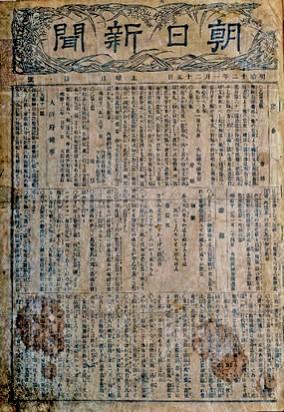
More than 8,700 people in Japan have filed a lawsuit against "The Asahi Shimbun", on Monday, over articles they published in the 1980s and the 1990s, concerning the controversial "comfort women" or sex slaves.
Although the 18 articles in question were formally retracted by the newspaper in August 2014, the plaintiffs are arguing that they "damaged Japanese people's personal rights and honour," The Japan Times reports. However, the petitioners - which include researchers, journalists and lawmakers - believe that the daily should further publish an ad apologising for "spreading erroneous facts to international society".
The suit filed with the Tokyo District Court also seeks that each of the plaintiffs be given a compensation of ¥10,000 (approximately $85).
The left-inclined daily had initially published the dicey articles based on the testaments of a man named Seiji Yoshida, who had claimed to have had participated in rounding up females who were used as sex slaves by the Japanese military.
Yoshida, who is now dead, had claimed that he had forcibly taken women - euphemistically referred to as "ianfu" (comfort women) - to the island of Jeju that was then under the Japanese colonial rule, now part of South Korea - and forced them into sexual labour for Imperial Japanese troops before and during World War II.
On 5 August, "The Asahi Shimbun" admitted that Yoshida's accounts were false.
"There is no evidence that Japanese authorities took comfort women forcibly," the plaintiffs said in the lawsuit. "They became the cause to globally spread the distorted history showing comfort women were forcibly taken by the Japanese military in an organised manner."
"The Asahi Shimbun" has only apologised to readers, and not done nearly enough to restore the public's honour in international society, allege the plaintiffs. Sophia University professor emeritus Shoichi Watanabe, who is leading the plaintiffs, was quoted as saying that he "feels angry as the Asahi makes Japanese people ashamed".
The number of plaintiffs is expected to rise from 8,700 to 13,000 soon.
Meanwhile, Asahi has said that it would "consider how to deal with the matter after thoroughly reading the complaint."
















